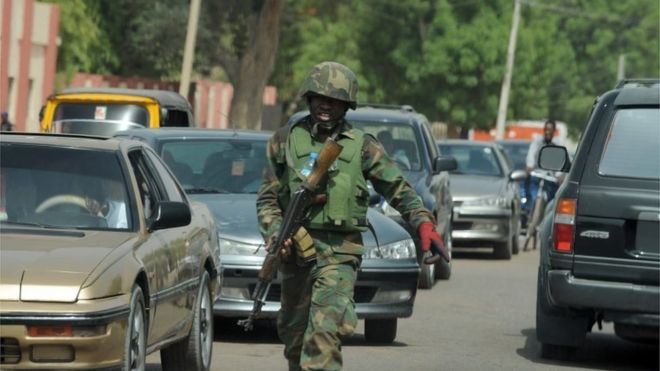
Nigeria has banned all cars, public transport, horses, donkeys and camels in Borno state to prevent an attack by militant group Boko Haram over the Muslim Eid al-Adha holiday.
The ban came into effect on Wednesday evening and lasts until Friday.
Borno is where the Boko Haram insurgency began and on Sunday at least 54 people died in a triple bombing in the state capital Maiduguri.
Some 17,000 people are said to have been killed in the six-year insurgency.
Attacks by the Islamist group have intensified since Muhammadu Buhari became president in May, after winning elections.
The Nigerian military has previously banned all horses and donkeys in Borno, following a wave of attacks by Boko Haram fighters using such animals.
Military spokesman Col Tukur Gusau added that "all vehicular movements into and out of Maiduguri town will also be restricted" until further notice.
The security forces have in recent months reclaimed territory captured by Boko Haram fighters.
The army has also freed a number of people kidnapped by the militant group and this week announced that 241 women and children had been rescued near the border with Cameroon.
Boko Haram at a glance:
 AFP
AFP- Founded in 2002, initially focused on opposing Western-style education - Boko Haram means "Western education is forbidden" in the Hausa language
- Launched military operations from Maiduguri in 2009
- Thousands killed, mostly in north-eastern Nigeria, hundreds abducted, including at least 200 schoolgirls
- Joined so-called Islamic State, now calls itself IS's "West African province"
- Seized large area in north-east, where it declared caliphate
- Regional force has retaken most territory this year



No comments:
Post a Comment